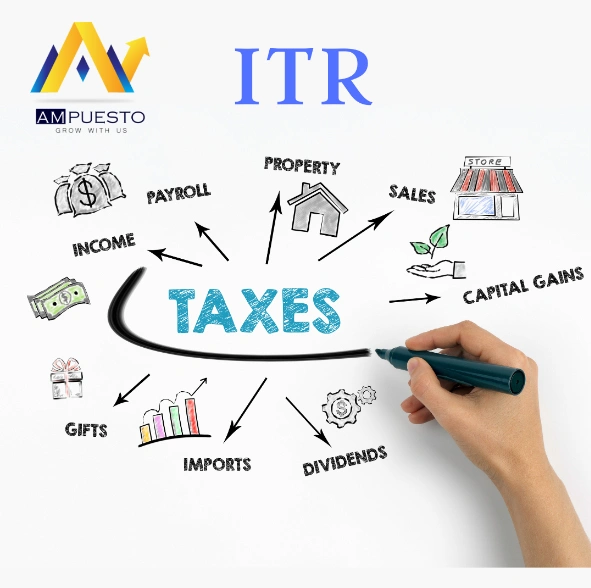Every salaried individual whose annual income exceeds Rs. 2.5 lakhs are needed to file an income tax return. However, if their annual income is less than Rs. 5 lakhs, they are eligible for a tax rebate. Those who are earning high have a higher tax liability, which making it necessary for them to reduce their tax burden. In order to know that how much you can actually save on taxes it is important to understand the slabs. Based on the annual income of an individual, the tax payers are categorized in income tax slab. So, if you are really looking for a way to save on taxes you have to do tax planning at the starting of financial year in which you earn your income, which eventually everyone does then you can either, invest your money in various tax saving funds, insurance or put them in saving instruments for future.
It’s important to note that tax-saving should not be the only consideration while making investment decisions. It’s crucial to evaluate investment options based on your financial goals, risk tolerance, and investment horizon. It’s also recommended to consult a financial advisor or tax professionals to ensure that you make the right investment decisions and can avail tax benefit at the time of filing income tax return. In conclusion, tax saving is an essential aspect of personal finance that helps individuals reduce their tax liability, increase their disposable income, and achieve long-term financial security.
In this blog we are going to discuss some best investment in which you can save your tax expense. We have divided the tax exemptions into section wise categories based on deductions so that you can easily understand how much you may put into an investment that will save your money on taxes.
1. Deduction 80C
Contribution to Public Provident Fund (PPF):- Investments made in Public Provident Fund (PPF) are eligible for deduction under Section 80C of the Income Tax Act. The maximum deduction limit for PPF investment is up to INR 1.5 lakhs per financial year. To claim the deduction under Section 80C for PPF investment, you need to provide details of the investment made in the PPF account while filing your Income Tax Return (ITR).
Contribution for the units of Mutual Fund (Equity Linked Saving Scheme): Investments made in mutual funds are eligible for tax deductions under Section 80C of the Income Tax Act. Equity Linked Saving Schemes (ELSS) are the type of mutual funds that are eligible for tax deductions under Section 80C. ELSS funds have a lock-in period of three years, and the maximum deduction limit under Section 80C for ELSS investment is up to INR 1.5 lakhs per financial year. To claim the deduction under Section 80C for ELSS investment, you need to provide details of the investment made in ELSS while filing your Income Tax Return.
Life insurance premium: LIC deduction typically refers to the deduction that can be claimed by an individual or a Hindu Undivided Family (HUF) under Section 80C of the Income Tax Act for the premium paid towards a life insurance policy issued by the Life Insurance Corporation of India (LIC). The premium paid towards a life insurance policy of LIC can be claimed as a deduction from the taxable income of an individual or HUF, subject to a maximum limit of Rs.1.5 lakh per financial year.
Sukanya Samridhi Yojana: Sukanya Samriddhi Yojana (SSY) is a government-backed savings scheme for the benefit of the girl child, The contributions made towards Sukanya Samriddhi Yojana are eligible for tax benefits under Section 80C. The maximum amount eligible for deduction under this section is Rs. 1.5 lakh in a financial year. Additionally, the interest earned and the maturity amount received are also tax-free.
National Saving Certificate: Investments made towards NSC are eligible for tax deductions under Section 80C of the Income Tax Act, 1961. The maximum amount that can be claimed as a deduction under this section is Rs. 1.5 lakh per annum. The interest earned on NSC investments up to first 4 years are also eligible for tax deduction under Section 80C. It is also important to note that the NSC investments have a lock-in period of 5 year and premature withdrawals are subject to certain penalties.
Repayment of home loan: The deduction can be claimed on the principal repayment component of the home loan, which is included in the EMI payments made towards the loan. The deduction can also be claimed on any pre-payment of the principal amount. The maximum deduction that can be claimed is up to Rs. 1.5 lakhs per financial year. However, it’s important to note that this deduction is only available if the property for which the loan is taken is used for self-occupation. If the property is rented out or used for any other purpose, this deduction is not applicable.
Fixed deposit in schedule bank or post office: The deduction can be claimed for the amount invested in the 5-year FD, subject to a maximum limit of Rs.1.5 lakh. It is important to note that the interest earned on the 5-year FD is taxable as per the individual’s income tax slab. Additionally, the 5- year FD must be held for a minimum period of 5 years to claim the deduction under Section 80C. If the FD is withdrawn before the completion of 5 years, the deduction claimed earlier will be added back to the individual’s taxable income in the year of withdrawal.
Note: The tax deduction available under Section 80C of the Income Tax Act, 1961, is subject to an overall limit of Rs. 1.5 lakh per annum, which includes investments made towards NSC and other eligible investments such as Provident Fund (PF), Public Provident Fund (PPF), Equity Linked Savings Scheme (ELSS), LIC premium, Fixed Deposits, etc.
2. Deduction 80CCD
National Pension Scheme: Under Section 80CCD of the Income Tax Act, an individual can claim a deduction for the contributions made towards the National Pension System (NPS). The maximum deduction that can be claimed under this section is up to 10% of the salary (basic + DA) for salaried employees and up to 20% of the gross total income for self-employed individuals. Additionally, an individual can claim an additional deduction of up to Rs.50,000 per financial year for self-contribution towards NPS in addition with 80C deduction under section 80CCD (1B) for the contributions made towards the NPS. This means an individual can claim a total deduction of Rs.2 Lakh by making investment in 80C and 80CCD (1B).
3. Deduction 80D
Medical insurance policy: Under Section 80D of the Income Tax Act, an individual can claim a deduction for the amount paid towards a medical insurance premium for themselves, their spouse, and dependent children, as well as for their parents. The maximum deduction that can be claimed under this section is up to Rs. 25,000 for the financial year 2022-23 for the individual, spouse, and dependent children. Additionally, an individual can claim an additional deduction of up to Rs. 25,000 for the financial year 2022-23 for the medical insurance premium paid for their parents. If the parents are senior citizens (above 60 years of age), the maximum deduction that can be claimed is up to Rs. 50,000 for the financial year 2022-23 Therefore, an individual can claim a maximum deduction of up to Rs. 75,000 (Rs. 25,000 for self, spouse, and dependent children + Rs.50,000 for senior citizen parents) under Section 80D for the financial year 2022-23. It is important to note that the medical insurance premium must be paid by any mode other than cash to claim the deduction. Also, if the individual receives any reimbursement for the medical insurance premium paid, the amount reimbursed will be reduced from the deduction claimed under Section 80D.
4. Deduction 80DDB
Medical treatment: This section provides for a deduction to a person who has incurred expenses towards medical treatment of himself or for any dependent relative. The amount of deduction that can be claimed depends on the disability, and is subject to certain conditions Amount allowed as deduction is upto Rs. 40,000/- (1,00,000/- in case of senior citizens) per financial year. To claim this deduction, you must obtain a certificate of disability from a medical authority specified by the Income Tax Department.
5. Deduction 80E
Interest on education loan: The 80E deduction is a tax deduction available to individuals in India who have taken an education loan for themselves, their spouse or children for higher studies. Under this section, individuals can claim a deduction on the interest paid on an education loan for a maximum of 8 years or until the loan is fully repaid, whichever is earlier. The deduction is available only for loans taken for higher studies in India or abroad, after completing senior secondary education. To claim the deduction, individuals must provide a certificate of interest paid on the education loan from the financial institution from which the loan was taken.
6. Deduction 80EE
Interest on House loan: Individuals who have taken a home loan for the first time and have bought a residential property can claim a deduction on the interest paid on the loan. The maximum deduction that can be claimed is up to Rs.50,000 per financial year. Deduction is allowed only if value of such house property does not exceed Rs.50 Lakhs and such taxpayer does not own any other house property residential house property at the date of loan sanction.
7. Deduction 80G
Donation to charitable Trust: There are four different types of deductions are available in this section. This 80G deduction is a tax deduction available to Indian taxpayers who make donations to eligible charitable organizations. Under Section 80G of the Income Tax Act, 1961, taxpayers can claim a deduction on the amount donated to specified charitable organizations or trusts. The maximum deduction allowed under this section for charitable trust donation is 50% of total deduction made subject to 10% of its adjusted total income.
8. Deduction 80GGC
Contribution to political party: This deduction is a tax deduction available to individual taxpayers who make donations to political parties or electoral trusts in India. The maximum amount that can be claimed as a deduction under 80GGC is 100% of the amount donated. However, the total deduction claimed by a taxpayer cannot exceed 10% of their gross total income for the financial year. However deduction is available only if the contribution is made by any mode other than cash and kind.
9. Deduction 80TTA
Interest on saving account: Interest earned on savings account allowed as deduction of up to Rs. 10,000 under Section 80TTA for the interest earned on savings accounts held with banks, post offices, and cooperative societies. This deduction is available to individuals and Hindu Undivided Families (HUFs).
10. Deduction 80U
Person with disability: Under Section 80U, a person with a disability can claim a deduction for certain expenses incurred towards medical treatment. The deduction amount varies based on the severity of the disability. If the disability is up to 40%, the deduction amount is Rs. 75,000. If the disability is more than 40%, the deduction amount is Rs. 1,25,000. To claim this deduction, you need to obtain a certificate of disability from a medical authority specified by the Income Tax Department. The certificate should indicate the percentage of disability and the nature of the disability. Deduction under Section 80U and 80DDB cannot be claim simultaneously.









